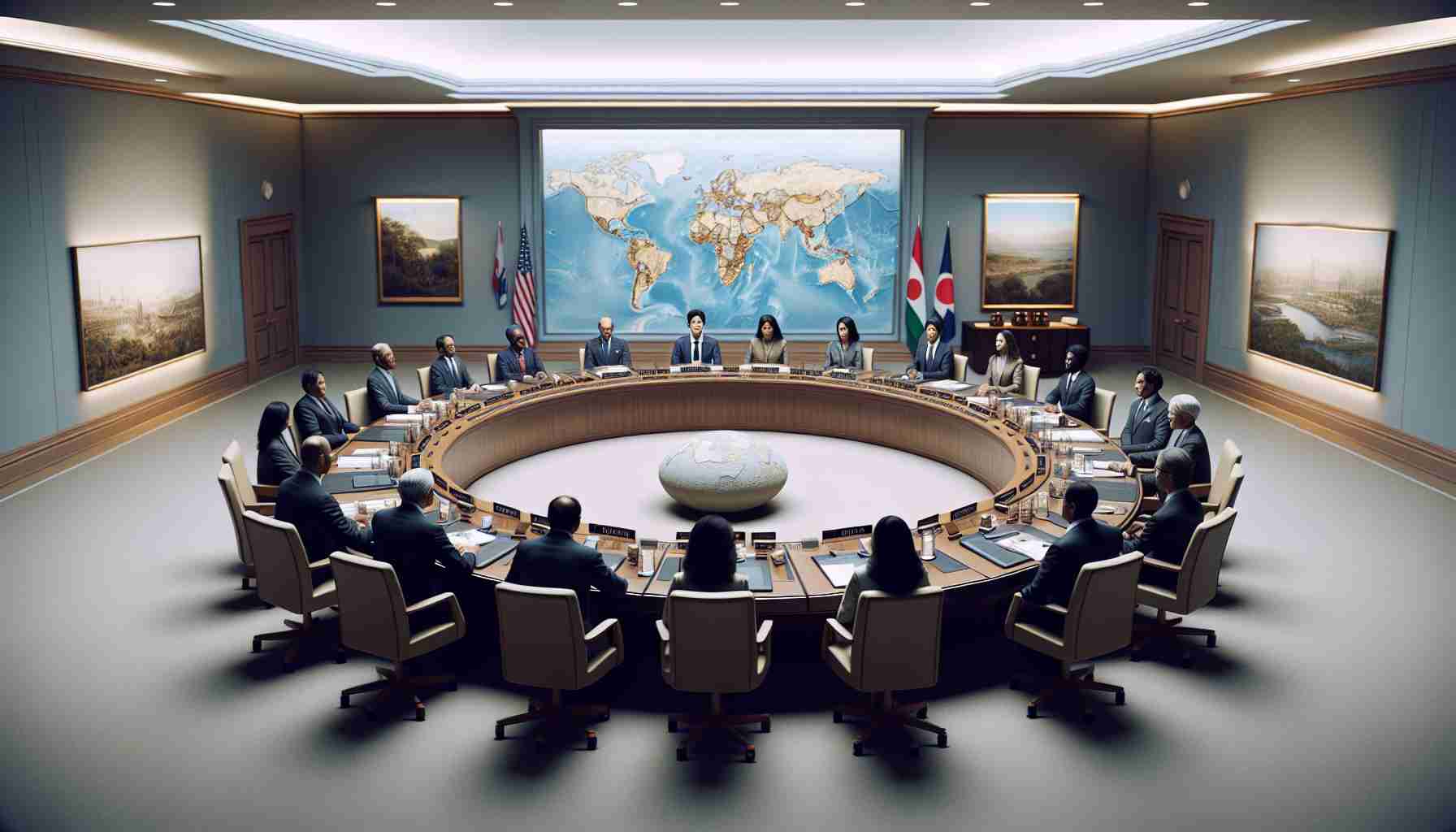- Key figures involved are King Abdullah II of Jordan, President Donald Trump, and Secretary of State Marco Rubio.
- Tense discussions focus on a proposal to relocate part of the Gazan population to Jordan.
- King Abdullah diplomatically avoids commitment and redirects focus toward Egypt’s role.
- Egypt is tasked with drafting a proposal for the Arab League, adhering to the two-state solution.
- Upcoming discussions in Saudi Arabia to scrutinize Egypt’s plan could shift regional dynamics.
- The situation underscores the global impact of Middle Eastern diplomacy, reflecting on longstanding conflicts.
An air of unease hung in the Oval Office like a heavy fog on February 11, 2025. Amidst the ornate furnishings and historical gravitas stood three men: King Abdullah II of Jordan, U.S. President Donald Trump, and Secretary of State Marco Rubio. The atmosphere crackled with tension, emblematic of the complex diplomatic chess game unfolding.
Beneath the polished veneer, the King of Jordan appeared visibly strained, eyes flickering with a nervous tic. His challenge? Not to upset his formidable host while dodging pointed questions from relentless journalists. A looming humanitarian dilemma sat at the heart of the discussion—a proposal to relocate part of the Gazan population to Jordanian soil.
With diplomatic finesse, King Abdullah sidestepped an immediate commitment. His eloquent English swirled around the issue, subtly deflecting the inquiry toward Egypt. The neighboring nation, also drawn into the fray by the White House, holds the responsibility to draft a proposal on behalf of the Arab League.
Egypt’s plan promises to adhere to the longstanding two-state solution and is set to undergo scrutiny in forthcoming discussions in Saudi Arabia. As negotiations intensify, the initiatives could potentially redefine alliances and territorial realities in a region already teetering on the brink.
In this pivotal moment, the world watches—wondering if strategy and negotiation can resolve issues mired in decades of history and conflict. Caught between tradition and transformation, the fate of kings, nations, and peoples hangs delicately in the balance. The unfolding diplomatic effort underscores a critical truth: in the Middle East’s complex theater, every move reverberates globally.
Diplomatic Chess: The High-Stakes Game in the Oval Office
Additional Relevant Information
The diplomatic meeting described in the source article paints a tense picture of Middle Eastern negotiations. Here are additional facts and relevant questions to deepen your understanding:
1. Context of U.S. Engagement in Middle East Peace Initiatives:
– Historically, the U.S. has played a crucial role in facilitating peace talks between Israel and Palestine. These initiatives often involve proposals like the two-state solution and various territorial concessions, impacting neighboring countries like Jordan.
2. Jordan’s Historical Role:
– Jordan is no stranger to regional conflicts, having absorbed waves of Palestinian refugees since the founding of Israel in 1948. Its strategic positioning means it often acts as a mediator and is key to any discussion regarding the Palestinian territories.
3. Egypt’s Involvement:
– Egypt, sharing a border with Gaza and historically involved in Israeli-Palestinian peace processes, is crucial in creating any peace frameworks. The country’s influence in the Arab League can tip the balance towards accepted regional solutions.
4. Global Implications of Middle Eastern Peace:
– The resolution of conflicts in this region has global repercussions, impacting international security, economic markets, and geopolitical alliances. The stability of the Middle East is often a bellwether for global peace.
Potential Questions and Answers
– Why is the relocation of Gazans controversial?
– Relocating the Gazan population stirs tension due to historical, political, and ethical concerns. There are issues related to territorial sovereignty, resource distribution, and the right of return for Palestinian refugees.
– How does the two-state solution factor into current discussions?
– The two-state solution is a mainstay of diplomatic efforts to resolve the Israeli-Palestinian conflict. It proposes an independent Palestinian state alongside Israel, intending to address territorial disputes and ensure mutual security.
– What role does the U.S. play in this diplomatic situation?
– As a major ally of Israel and a significant power in international diplomacy, the U.S. acts as both a mediator and influencer in negotiations, often leveraging its position to encourage peace initiatives.
Suggested Links
– United Nations
– U.S. Department of State
– Government of Jordan
Understanding this diplomatic narrative’s broader context reveals the complexities and stakes involved. As global eyes watch the unfolding dynamics, the intricate dance of diplomacy can shape history’s course in the Middle East.
